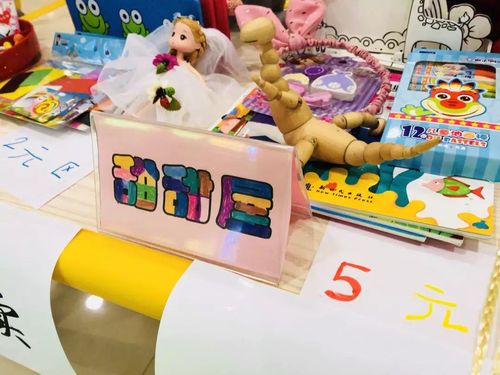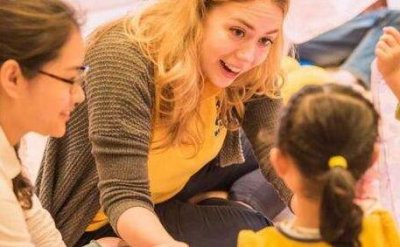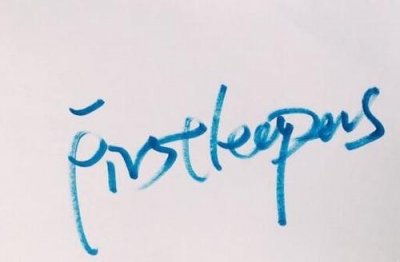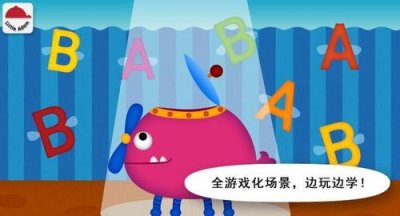初中英语短语大汇总,正式英语与非正式区别?
长沙励步英语培训最新资讯:自然拼读法的第一步是掌握二十六个字母的读音 (Letter Sounds). 其中五个元音字母(a, e, i, o, u)发两种音。今天Monkey老师分享的是初中英语短语大汇总,正式英语与非正式区别?

1. To do 结构题
ask sb. to do sth.请(叫)某人做某事
tell sb to do sth
help sb ( to) do sth. 协助做某事
want sb to do sth. 想要做某事
wish sb to do sth. 希望做某事
invite sb. to do sth. 约请某人做某事
drive sb. to do sth .驱使某人做某事
expect sb. to do sth. 希冀某人做某事
forbid sb. to do sth. 制止某人做某事
force sb. to do sth. 强迫某人做某事
hope to do sth. 希望做某事
offer to do sth. 自动提出做某事
plan to do sth. 方案做某事
prepare to do sth. 预备做某事
pretend to do sth. 伪装做某事
promise to do sth. 容许做某事
refuse to do sth. 回绝做某事
fail to do sth. 未能做某事
happen to do sth. 碰巧做某事
need sb to do sth
need doing =need to be done
advise sb. to do sth. 建议某人做某事
advise doing sth. 建议做某事
allow sb. to do sth. 允许某人做某事
allow doing sth
2. ing 结构
consider doing sth. 思索做某事
enjoy doing sth. 喜欢做某事
escape doing sth. 逃脱做某事
finish doing sth. 完成做某事
give up doing sth. 保持做某事
imagine doing sth. 想象做某事
mind doing sth. 介意做某事
practice doing sth. 练习做某事
prevent doing sth. 阻止做某事
put off doing sth. 推延做某事
risk doing sth. 冒险做某事
forbid doing sth. 制止做某事
forgive doing sth. 原谅做某事
3. 既 to 又 ing
(1) remember to do sth. 记住去做某事,表示这件事情还没有做
remember doing sth. 记得做过某事
(2) forget to do sth. 忘记要去做某事。 (未做)
forget doing sth. 忘记做过某事。 (已做)
(3) regret to do sth. 遗憾地(要)做某事 (还未做呢)
regret doing sth. 后悔做过某事(已经做过了)
(4) try to do sth. 努力做谋事,尽力做某事,但不一定成功
try doing sth. 试图做谋事
(5) stop to do 表示停止现在在做的事情,开始做另外一件事情
stop doing 表示停止现在在做的事情
(5) mean to do sth. 计划做某事
mean doing sth. 意味着做某事
(6) can’t help to do sth. 不能协助做某
can’t help doing sth. 禁不住做某事
(7) go on to do sth. 做了一件事后,接着做另一件事
go on doing sth. 继续做原来做的事
4.do 动词原形
let sb. do sth.让某人做某事
make sb. do sth. 使某人做某事
make sth done
have sb. do sth. 使某人做某事
have sth done
see sb. do sth. 看见某人做某事
see sb doing
hear sb. do sth. 听见某人做某事
hear sb doing
listen to sb. do sth. 听着某人做某事
listen sb doing sth
look at sb. do sth. 看着某人做某事
watch sb. do sth. 察看某人做某事
feel sb. do sth. 觉得某人做某事
had batter do sth
5.双宾语
give sb sth = give sth to sb
tell sb sth = tell sth to sb
borrow sth from sb
lend sth to sb
buy sth for sb =buy sb sth
show sb sth=show sth to sb
6. Be 动词结构
be at home = stay at home
be in trouble
be careful of
be late for
be free 空闲的,有空
be busy doing/with sth
be covered with 被……复盖
be ready for 为……作好准备
be surprised (at) 对……感到惊讶
be interested in 对……感到举
be excited about
be angry with
be mad at
be friendly to
be pleased with
be satisfied with
be famous for
be famous as
be strict with
be strict in
be afraid of
be afraid to do
be worried about =be anxious about
be glad to do
be from = come from
be good for
be bad for
be good at = do well in
be able to do
7.Go , get……结构
go go bed 睡觉
go to sleep
go to school
go home
go fishing /swimming/shopping
go over 复习
get over 克服
get in 进入,收集
get on/off 上/下车
get to 到达
reach
arrive in/at
8. 固定搭配
have a lesson /a meeting 上课/开会
have a try 试一试
have a good time 玩得很高兴
have fun
have breakfast/lunch/supper 吃早饭/午饭/晚饭
have a meal (three meals) 吃一顿饭
have a fever 发烧
have a coldb感冒
have a look (at) 看一看……
have a rest 休息一会儿
have a talk 谈话
have a walk =take a walk 散步
make friends (with)与……交朋友
make a living 谋生
make a mistake (mistakes)犯错误
make a sentence
be made from/of 由……制成
be made in 在……地方制造
look after =take care of照管,照看,
look for 寻找
look like 看上去像
look out 当心,小心
look around 朝四周看
look at 看着……
put on 穿上(衣服),戴上(帽子)
put up 张帖
set up 竖起,建起
set off 出发,动身
set out 出发
send for 派人去请
take one's advice 听从某人劝告
take out 拿出,取出
take down 拿下
take place 发生
take the place of 代替
take it easy 别紧张
take away 拿走
take off 脱下,起飞,休假
day off / have off 休假
take photos 拍照
take some medicine 服药
turn on 开,旋开(电灯,收音机等)
turn off 关上(电灯,收音机等)
turn down (把音量)调低
turn up
turn in 交出,上交
turn…into… 变成
turn…over 把……翻过来
at once 立刻
at last 最后
at first 起先,首先
at the age of… 在……岁时
at the end of… 在……之末
by the end of… 到……底为止
at the beginning of… 在……之初
at night/noon 在夜里/中午
in the day
in all 总共
in fact 事实上
in one's twenties 在某人二十几岁时
in a hurry 匆忙
in time
on time
in public 公众,公开地
in order to 为了……
in front of 在……前面
in the front of
in the end 最后,终于
in turn 依次
of course 当然
from now on 从现在起
from then on 从那时起
for example 例如
far away from 远离
by the way 顺便说
in the way
in this way
on one's way
a piece of 一张(一片,块)
a cup of 一茶怀
a glass of 一玻璃杯
a box of 一盒
a bottle of 一瓶
a set of 一套
a group of 一队,一组,一群
a kind of 一种
all kinds of
kind of
a type of 一种类型的
a different type of 一种不同型号的
a great deal of 非常多,大量的(不可数名词)
a large (great) number of 非常多,大量的(可数名词)
a great many 大量,许多(可数名词)
all over the world/the country 全世界/全国
the whole country/the whole world
day after day 日复一日
day by day
up and down 上上下下
the day after tomorrow 后天
the day before yesterday 前天8.其他固定搭配
langht at 嘲笑
be used to doing习惯于
used to 过去常常
use sth to do sth
be used to do
be used for doing
wake…up 唤醒
work out 算出
hurry up 赶快,快点
think about 考虑……
think of
worry about = be worried about
= be anxious about 担忧
throw away 扔掉
hear of 听说
hear from 收到……来信
instead of 代替……
with one's help 在某人的帮助下,由于
with the help of … 在……的帮助下
to one's surprise
up and down 上上下下
just now/then 刚才/那时
late on 过后,后来
work /study hard
come out
wait for
do morning exercises 做早操
do eye exercises 做眼保健操
get on/along (well) with 与……相处(融洽
In the hospital
In hospital
keep up with 跟上……,
be different from
three minutes' walk
so far
catch the early bus
It takes sb some time to do sth
sb spend some time/money (in)doing /on sth
hundreds / thousands /millions of
一、正式英语与非正式英语区别
正式英语(formal English)是比较严谨、庄重的语体。其特点是在词汇、初中英语短语大汇总,正式英语与非正式区别?句子、语音方面都必须严格遵守民族标准语言的规范。它所表达的是作者与读者直接的一种非个人的关系,它力求不借助其它非语言表达方式如面部表情、手势等来准确地表达思想。
而反过来说,非正式英语(informal English),又称口头英语(spoken English)或日常交谈语体。其特点是多少有些脱离标准语言规范,用词比较自由,句型结构比较简单。它体现出说话者和听者之间试图建立一种随和的、轻松的、亲密的关系。
在什么场合选择哪种正式程度的语言表达是一个十分重要的问题。有的情况下,用太过正式或太过不正式的语言都会给别人留下不好的印象(bad impression)。
那么,正式与非正式英语用法是怎样的呢?
1. 复杂的单词(complicated vocabulary)vs 简短的单词(short words)
比如说,fatigued(疲惫的)vs tired(疲惫的)、explode(爆炸)vs blow up(爆炸)、reduce(减少)vs cut down(减少)等等。
2. 复杂长句(long and complicated sentences)vs 简单短句(simple sentences)
比方说,“虽然当前经济十分强盛,但一些专家预言经济衰退即将来临”
正式:The economy is currently quite robust; nevertheless, some specialists predict an imminent recession.
非正式:The economy is very strong right now, but some specialists say we’ll have a recession soon.
3. 回避短语动词(phrasal verbs)vs 大量使用短语动词、俚语、习语以及聊天语言(phrasal verbs,slang、idioms and text speaking)
我们经常会发现,明明课本学得还不错,但是就是听不懂电影和电视剧里的英文,这是为什么呢?因为电影和电视剧里经常出现大量的俚语和习语,即便单词量过关,能够完全听懂还是有点困难,毕竟我们在书本里是不会学到这些。看看下面这些比较:
一百万美元盈利
正式:A million dollars in profit.
俚语:A million bucks in profit.
软件很好用
正式:The software is quite user-friendly.
习语:Idiom: The software is a piece of cake.
见到你很高兴
正式:Nice to meet you!
聊天语言:Nice 2 meet u!
4. 经常使用非人称(impersonal pronoun)代词和被动形式vs 常用第一、二人称和主动形式
在国外写论文的时候,教授们通常会要求学生们用非人称或被动形式来陈述,而避免用第一或二人称I/you/we和主动形式。虽然这些单词广泛应用于非正式用语和口语中,通常认为在正式的学术性写作中,这些单词太过个人化,太过随意。比如:
正式:It is believed that this problem will be solved in the future.
非正式:We believe this problem will be solved in the future.
5. 避免使用缩写(contractions)+注重语法 vs 使用缩写+抛弃完美语法(perfect grammar)
在使用正式英语时,无论你再有强迫症也好,缩写也是要避免的。比如常用的it’s,在正式的论文和考试中必须写成it is。相对来说,非正式英语则喜欢越短越方便交流最好,在语法方面也不是十分在意,不要求完美,只要没有错误,对方可以理解,就可以随意一些。比如:
正式:Have you finished your work yet?
非正式:Finished your work, yet?
正式:Could you please give me a hand?
非正式:Help me!
看完上面用法的总结,那什么情况下使用正式英语,什么情况下使用非正式英语呢?
一般是由交际场合决定的。正式英语一般常用于课本,官方报告(official reports), 学术文章(academic articles), 论文(essays),商务信件, 协议和官方演讲一类;而非正式英语一般来说多用于熟人之间的聊天或网络聊天(online chatting)。
本文由长沙励步英语官网发布,文章作者:Monkey





 如何培养孩子读英文绘
如何培养孩子读英文绘 怎样让英语学习做到活
怎样让英语学习做到活 初中英语学习方法有哪
初中英语学习方法有哪 单词的重读与音节对英
单词的重读与音节对英 最新6个帮助孩子学习
最新6个帮助孩子学习 手足口病又来了,家长
手足口病又来了,家长 幼儿园活动方案如何写
幼儿园活动方案如何写 2018最新幼儿园父亲节
2018最新幼儿园父亲节 英语单词怎样联想记忆
英语单词怎样联想记忆 2018幼儿园父亲节活动
2018幼儿园父亲节活动 初中生学英语的方法有
初中生学英语的方法有 英语学习数词专项练习
英语学习数词专项练习 零基础如何英语学习音
零基础如何英语学习音 孩子英语启蒙的具体应
孩子英语启蒙的具体应 汤唯教你如何通过英语
汤唯教你如何通过英语 值得推荐8部宝宝看的
值得推荐8部宝宝看的






